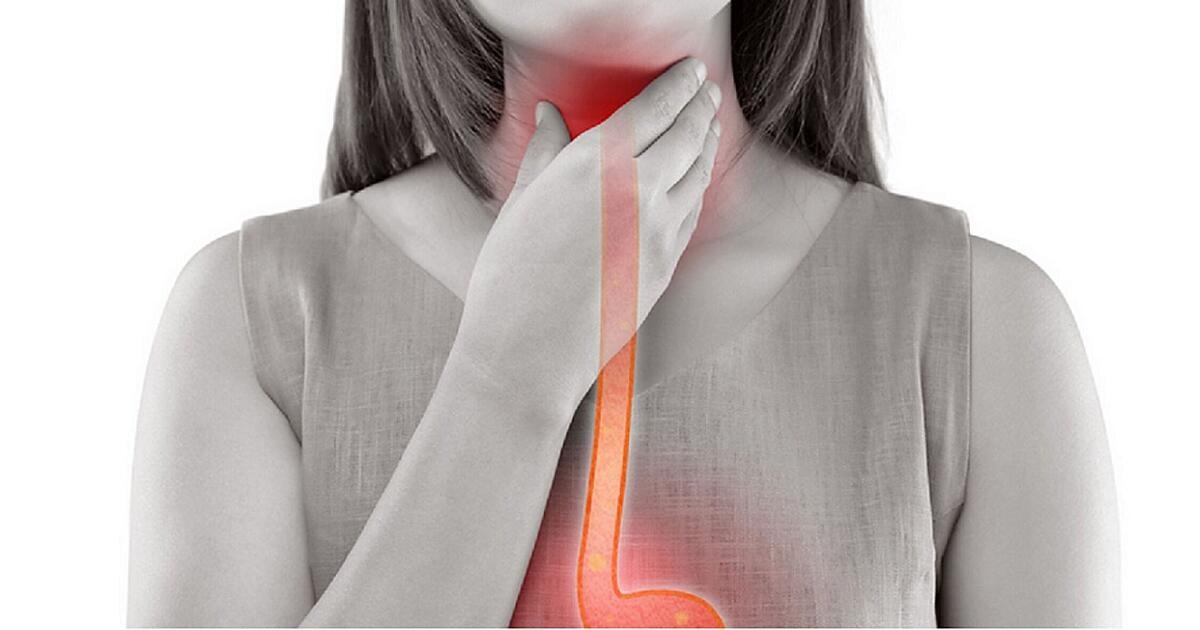Esophageal cancer is a serious condition that requires early detection for effective treatment. Recognizing the early warning signs is crucial in improving patient outcomes. If you reside in Noida, you can avail the expertise of the Cancer Hospital in Noida and consult with the Best Oncologist in Noida for comprehensive care and treatment.
Understanding Esophageal Cancer
Esophageal cancer occurs when abnormal cells in the esophagus, the tube that carries food from the mouth to the stomach, begin to multiply uncontrollably. There are two main types of esophageal cancer: adenocarcinoma and squamous cell carcinoma. Adenocarcinoma usually occurs in the lower part of the esophagus, while squamous cell carcinoma is more common in the upper and middle parts.
Certain risk factors increase the likelihood of developing esophageal cancer. These include chronic acid reflux, obesity, smoking, excessive alcohol consumption, a poor diet lacking in fruits and vegetables, and a history of Barrett’s esophagus. Regular screenings and check-ups are essential, especially for individuals with these risk factors, to detect the disease at an early stage.
Common Signs and Symptoms of Esophageal Cancer
Recognizing the signs and symptoms of esophageal cancer is crucial for early detection. The following are some common indicators that should not be ignored:
Difficulty swallowing (dysphagia): One of the primary symptoms of esophageal cancer is difficulty swallowing, especially with solid foods. This may indicate a narrowing or blockage in the esophagus caused by a tumor.
Persistent coughing or hoarseness: Chronic coughing or hoarseness that does not resolve within a few weeks may be a sign of esophageal cancer. It occurs due to the tumor’s proximity to the vocal cords or irritation caused by refluxed stomach acid.
Unexplained weight loss and loss of appetite: Significant and unintentional weight loss, along with a decreased appetite, may indicate an underlying health issue, including esophageal cancer. Cancer cells can alter the body’s metabolism, leading to unexplained weight loss.
Chest or abdominal pain: Persistent or worsening chest or abdominal pain should not be ignored. Esophageal cancer can cause discomfort or pain in the chest or abdomen, often described as a burning sensation or pressure.
Chronic heartburn or acid reflux: While occasional heartburn or acid reflux is common, chronic and severe symptoms should be evaluated. Prolonged acid reflux can damage the lining of the esophagus, increasing the risk of developing esophageal cancer.
Frequent choking while eating: If you frequently experience choking or the sensation of food getting stuck in the throat while eating, it could be a warning sign of esophageal cancer.
Recognizing Early Warning Signs
Early detection of esophageal cancer significantly improves treatment outcomes. It is essential to be aware of your body and promptly report any concerning symptoms to a healthcare professional. In Noida, you can rely on the Cancer Hospital in Noida and the Best Oncologist in Noida to receive expert care and accurate diagnosis.
The Cancer Hospital in Noida boasts state-of-the-art facilities, cutting-edge technology, and a team of experienced oncologists. They follow a multidisciplinary approach, collaborating with specialists from various fields to provide personalized treatment plans.
Regular check-ups and consultations with medical professionals are vital, especially for individuals at a higher risk of developing esophageal cancer. These experts can conduct thorough evaluations, order necessary tests, and recommend appropriate treatment options tailored to each patient’s unique condition.
Diagnosis and Treatment Options
In order to diagnose esophageal cancer, several diagnostic procedures may be employed. These include:
Endoscopy: A thin, flexible tube with a camera on the end (endoscope) is inserted through the mouth into the esophagus. This allows the doctor to visualize any abnormalities and take tissue samples for biopsy.
Biopsy: During an endoscopy, small tissue samples are collected from the esophagus for examination under a microscope. This helps determine if cancer cells are present and the type of esophageal cancer.
Imaging tests: X-rays, CT scans, PET scans, and ultrasound may be used to create detailed images of the esophagus and surrounding areas. These tests help determine the stage of the cancer and if it has spread to other parts of the body.
Once diagnosed, the treatment options for esophageal cancer depend on the stage of the disease and the individual’s overall health. Treatment may involve one or a combination of the following:
Surgery: Surgical procedures can involve removing part or all of the esophagus and nearby lymph nodes. In some cases, reconstructive surgery may be performed to restore the connection between the throat and stomach.
Chemotherapy: Anti-cancer drugs are administered to kill cancer cells or slow their growth. Chemotherapy can be used before surgery to shrink tumors, after surgery to destroy remaining cancer cells, or as the primary treatment for advanced cases.
Radiation therapy: High-energy radiation is used to kill cancer cells and shrink tumors. It can be delivered externally (external beam radiation) or internally (brachytherapy) using implanted radioactive sources.
Targeted therapy: These medications target specific genetic mutations or proteins in cancer cells, inhibiting their growth and promoting cell death. Targeted therapies are often used in combination with chemotherapy or radiation therapy.
Immunotherapy: This treatment harnesses the body’s immune system to recognize and attack cancer cells. Immunotherapy drugs help enhance the immune response against cancer and may be used in advanced or recurrent cases.
Prevention and Risk Reduction
While not all cases of esophageal cancer can be prevented, adopting healthy lifestyle habits can help reduce the risk. Consider the following measures:
Maintain a healthy diet: Include a variety of fruits, vegetables, whole grains, and lean proteins in your diet. Limit the consumption of processed foods, high-fat foods, and red meat.
Quit smoking and limit alcohol consumption: Both smoking and excessive alcohol consumption are significant risk factors for esophageal cancer. Quit smoking and drink alcohol in moderation or avoid it altogether.
Maintain a healthy weight and exercise regularly: Obesity increases the risk of developing esophageal cancer. Aim for a healthy weight and engage in regular physical activity.
Manage acid reflux and heartburn: If you frequently experience heartburn or acid reflux, seek medical advice for proper management. Lifestyle modifications, medications, and avoiding trigger foods can help alleviate symptoms and reduce the risk of esophageal cancer.
Conclusion
Early recognition of the signs and symptoms of esophageal cancer is crucial for timely diagnosis and effective treatment. By being aware of the common warning signs and promptly seeking medical attention, you can significantly improve your chances of successful outcomes. In Noida, the Cancer Hospital in Noida and the Best Oncologist in Noida are available to provide comprehensive care and specialized treatment options tailored to your needs.
FAQs (Frequently Asked Questions)
Q1. What are the risk factors for esophageal cancer?
Several risk factors increase the likelihood of developing esophageal cancer, including chronic acid reflux, obesity, smoking, excessive alcohol consumption, a poor diet lacking in fruits and vegetables, and a history of Barrett’s esophagus.
Q2. Can esophageal cancer be inherited?
While most cases of esophageal cancer are not inherited, there is a small percentage that may have a genetic component. Certain inherited conditions, such as Lynch syndrome and familial adenomatous polyposis (FAP), can increase the risk of developing esophageal cancer. If you have a family history of esophageal cancer or these genetic conditions, it is advisable to discuss genetic testing and counseling with your healthcare provider.
Q3. Are there any specific dietary recommendations for esophageal cancer patients?
Esophageal cancer and its treatments can affect a person’s ability to swallow and tolerate certain foods. It is important for patients to work with a registered dietitian or nutritionist who specializes in oncology to develop an individualized dietary plan. In general, soft, easily chewable foods, and small, frequent meals are recommended. The goal is to maintain proper nutrition and hydration while minimizing discomfort during eating.
Q4. How effective is treatment for esophageal cancer?
The effectiveness of treatment for esophageal cancer depends on various factors, including the stage of the cancer, the patient’s overall health, and the specific treatment approach. Early-stage esophageal cancer has a higher chance of successful treatment and cure. Treatment may involve surgery, chemotherapy, radiation therapy, targeted therapy, or a combination of these approaches. The oncology team will assess the individual case and discuss the most suitable treatment plan and expected outcomes.
Q5. Is it possible to prevent esophageal cancer if I have acid reflux or GERD?
While chronic acid reflux or gastroesophageal reflux disease (GERD) can increase the risk of developing esophageal cancer, it does not necessarily mean that everyone with acid reflux will develop cancer. However, managing and treating acid reflux is crucial to reduce the risk. This can include lifestyle modifications, such as avoiding trigger foods, maintaining a healthy weight, elevating the head of the bed during sleep, and taking medications as prescribed by a healthcare professional.
Q6. What support services are available for esophageal cancer patients and their families?
Esophageal cancer can have a significant emotional and practical impact on patients and their families. Many cancer hospitals, including the Cancer Hospital in Noida, provide comprehensive support services, including counseling, support groups, and survivorship programs. These services aim to address the psychosocial needs of patients and their families, offer guidance, and provide a platform for sharing experiences and finding support from others who have gone through similar journeys.






